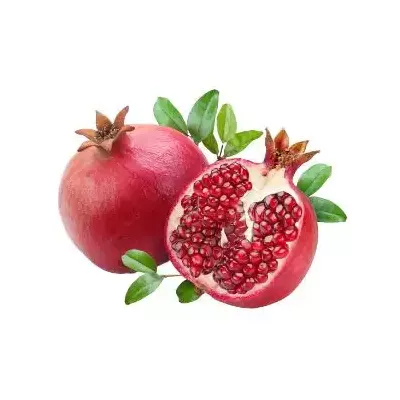



The pomegranate is a very popular fruit which is high in taste and nutritional value. Pomegranate improves body immunity and also cures digestive ailments.

Pay using UPI, Card or Netbanking

Shipping within 3 working days
The pomegranate, a small tree thriving in tropical countries, produces top-quality fruit with exceptional taste, numerous health benefits, and a long shelf life.
Pomegranate is symbolized in the Old Testament for fruitfulness. In the ancient Greek texts, pomegranate is mentioned as fruit that can heal stomach related diseases.
The botanical name for the pomegranate is Punica granatum. This herbaceous and medicinal tree is best suited for a kitchen garden, as its tree and fruit have a beautiful appearance. People use the syrup extracted from pomegranate fruit to add flavor to food and even alcohol.
Pomegranates stays fresh for about a month at room temperature, and last longer, up to two month, if kept in the fridge.
Once cracked open, they need to be consumed within a few days.
Pomegranate can grow in most climatic conditions, but they do best in a cooler and dry summer climate with ample water. Pomegranate trees start fruiting in two years, and fruiting happens at the tip of the branches.
Pomegranates can also be grown in large containers, but commercial cultivation requires spacing of 4 metres
Pomegranates have exceptional medicinal properties. They can be described as a small tree or a large shrub, and the apple-sized fruit is full of fleshy seeds.
Pomegranates are abundant source of magnesium, Calcium and Vitamin C. It is a natural remedy for various gastro-intestinal issues.
They also serve as a good thirst quencher, and the fruit, bark, and leaves are medicinal.
A few of the therapeutic uses of pomegranate are mentioned below.
1. Eating the shoots or dried fruit peels can relieve diarrhoea.
2. Regular consumption of pomegranate can alleviate constipation and flatulence.
3. Dried and powdered pomegranate served with honey can reduce raktapitta."
Data sheet